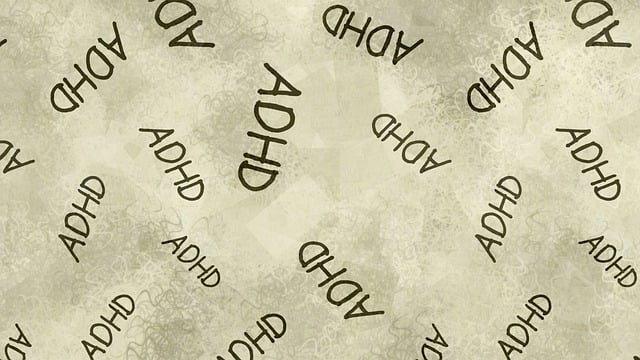Boulder Family Counseling Therapy prioritizes risk assessment as a foundational practice for safe and effective therapy. By analyzing physical, psychological, social, and emotional risks, therapists develop personalized strategies like Social Skills Training and Conflict Resolution Techniques. This holistic approach identifies underlying issues contributing to harm, leading to tailored harm minimization plans that include mood management, self-esteem improvement, and practical tools. Regular monitoring ensures the plan remains effective, addressing both acute crises and long-term risk factors associated with mental health conditions. Through proactive measures like community outreach, group therapy, and updated safety protocols, Boulder Family Counseling Therapy delivers comprehensive, safe, and supportive care to enhance client outcomes and promote mental wellness.
Risk assessment and harm minimization planning are essential components of safe practice in counseling, particularly at Boulder Family Counseling Therapy. This article guides professionals through a comprehensive framework designed to protect clients and ensure ethical therapy practices. We’ll explore key sections including understanding risk assessment as a cornerstone, identifying and evaluating potential harms, developing effective intervention strategies, and implementing continuous monitoring for optimal client safety.
- Understanding Risk Assessment: A Cornerstone of Safe Practice
- Identifying and Evaluating Harms: A Comprehensive Approach
- Developing a Minimization Plan: Strategies for Effective Intervention
- Implementation and Monitoring: Ensuring Continuous Safety in Therapy
Understanding Risk Assessment: A Cornerstone of Safe Practice

Risk assessment is a fundamental process that forms the backbone of safe and effective practices in various fields, including Boulder Family Counseling Therapy. It involves meticulously analyzing potential hazards or risks within a given environment or scenario, enabling professionals to take proactive measures for harm minimization. By identifying and assessing these risks, therapists at Boulder Family Counseling Therapy can create tailored strategies to ensure client safety and well-being.
This cornerstone approach is vital in managing vulnerable populations, such as families navigating challenges or individuals in crisis. Social Skills Training, Conflict Resolution Techniques, and Crisis Intervention Guidance are among the tools employed during risk assessment. These techniques help uncover underlying issues, anticipate potential triggers, and develop interventions to foster a safer, more supportive environment. Through structured risk assessments, Boulder Family Counseling Therapy ensures that each client receives personalized care, addressing specific needs while mitigating risks effectively.
Identifying and Evaluating Harms: A Comprehensive Approach

Identifying and evaluating harms is a crucial step in risk assessment and harm minimization planning, as it involves recognizing potential dangers within an individual’s life or environment. Boulder Family Counseling Therapy emphasizes a comprehensive approach to this process, ensuring that all aspects of a client’s well-being are considered. This includes not only physical risks but also psychological, social, and emotional factors that could lead to harm. By adopting a holistic perspective, therapists can uncover underlying issues such as low self-esteem or stress management challenges, which may contribute to risky behaviors or negative outcomes.
Through in-depth assessment, counselors at Boulder Family Counseling Therapy aim to understand the severity and likelihood of potential harms. This involves gathering information from clients, reviewing medical records, and observing behavioral patterns. By evaluating both immediate dangers and long-term risks, therapists can develop tailored strategies for harm minimization. Such plans often include interventions focused on mood management, promoting positive self-esteem improvement, and providing practical tools to navigate challenging situations safely.
Developing a Minimization Plan: Strategies for Effective Intervention

Developing a harm minimization plan is a proactive approach to ensuring safety and well-being, especially within vulnerable communities like those served by Boulder Family Counseling Therapy. This strategy involves identifying potential risks and implementing interventions that not only mitigate harm but also foster growth and resilience. One effective method is through community outreach program implementation, where counseling services are made accessible in diverse settings, breaking down barriers and reaching individuals who might otherwise be unable to access therapy.
Communication strategies play a pivotal role here. By utilizing compassion cultivation practices, therapists can create safe spaces for dialogue, encouraging open communication about risks and concerns. This fosters trust and empowers individuals to take charge of their well-being. For instance, group therapy sessions or community workshops can provide platforms for sharing experiences, offering support, and developing collective strategies to navigate challenges, ultimately enhancing the overall resilience of the community.
Implementation and Monitoring: Ensuring Continuous Safety in Therapy

Implementing a robust risk assessment and harm minimization plan is an ongoing process that requires meticulous monitoring at every stage of Boulder Family Counseling Therapy’s operations. This involves regular reviews of client profiles, treatment strategies, and environmental factors to identify potential hazards or triggers. By establishing clear protocols for intervention and de-escalation, therapists can ensure a safe space for clients while fostering open communication about vulnerabilities.
Monitoring systems should be comprehensive, encompassing not just acute crises but also long-term risk factors associated with mental health conditions like depression. This data-driven approach allows for proactive measures, such as adjusting treatment plans or referring clients to specialized services. Regularly reviewing and updating safety protocols in line with best practices and Mental Health Policy Analysis and Advocacy ensures that Boulder Family Counseling Therapy remains at the forefront of delivering effective, safe, and supportive care, ultimately enhancing client outcomes and promoting mental wellness through initiatives like Depression Prevention and Mental Wellness Journaling Exercise Guidance.
Boulder Family Counseling Therapy emphasizes the importance of risk assessment and harm minimization planning as fundamental practices for ensuring client safety. By understanding risk assessment as a cornerstone, identifying and evaluating potential harms comprehensively, and developing strategic intervention plans, therapists can proactively manage risks. Continuous monitoring during therapy implementation allows for immediate adjustments and ensures a safe environment. These evidence-based approaches not only protect clients but also foster trust and strengthen the therapeutic alliance at Boulder Family Counseling Therapy.














